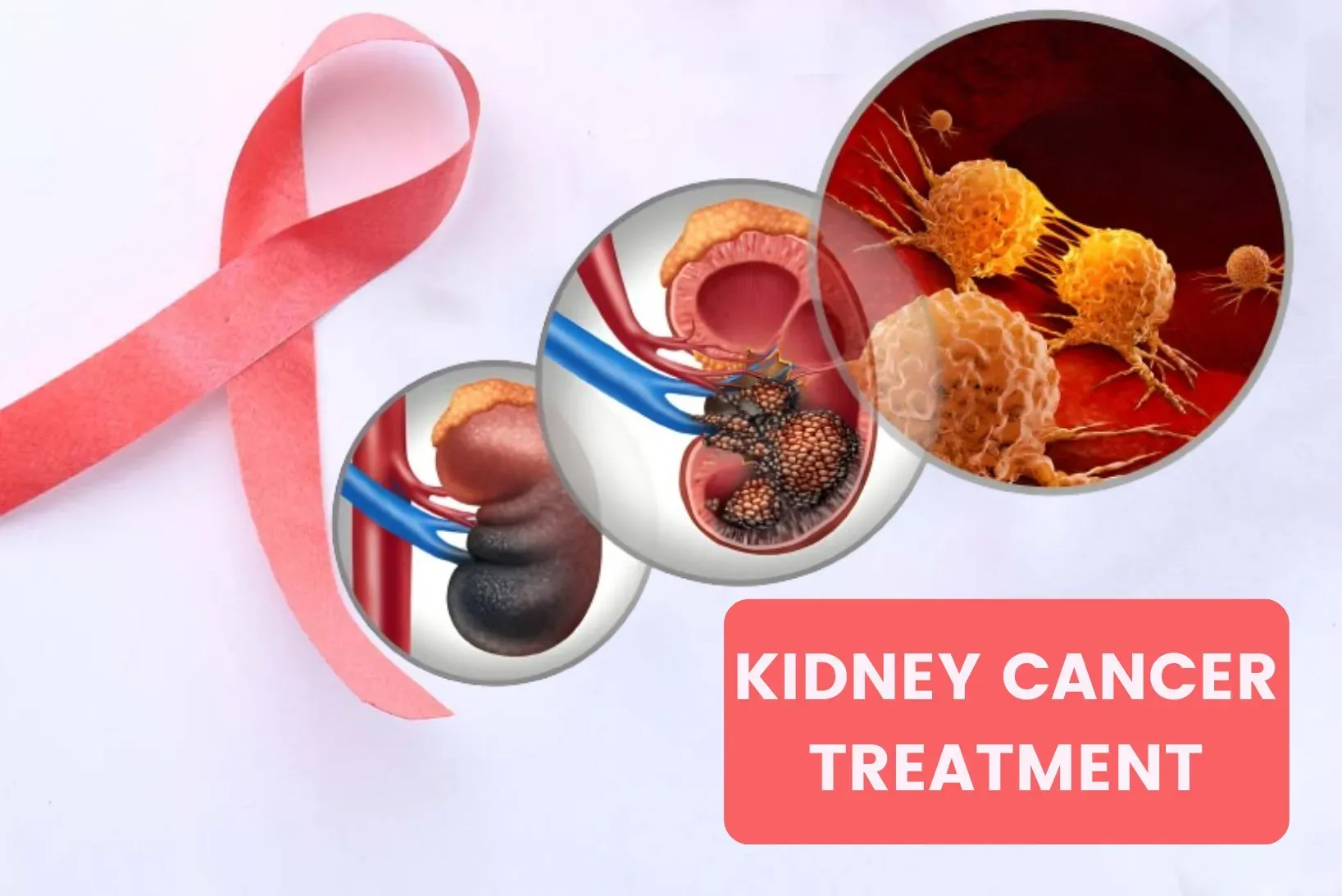Kidney cancer or renal cancer is a cancer that involves your kidneys. Cancer is a disease, which if not caught on time, death is inevitable. According to WHO statistics, the number of cancer patients is increasing every day. Kidney cancer can be of different types. About 90-95% of kidney cancers are various types of renal cell carcinoma. This disease mostly affects elderly people. This disease mostly affects elderly people.
 |
| Kidney Cancer Treatment |
Causes Of Kidney Cancer
Kidney cancer can’t be attributed to one cause. Several factors increase the change of developing renal cancer. They are:
- Smoking, it doubles the risk.
- Obesity and its accompanying 30 body mass Index.
- Hypertension
- Exposure to aromatic such as benzene.
- Long-term dialysis.
- If the kidney is transplanted.
- Inherited syndromes.
- Family history of kidney cancer.
- High blood pressure.
- Treatment for kidney failure.
Kidney Cancer Symptoms
- Blood in your urine
- Pain in your back or side
- Loss of appetite
- Unexplained weight loss
- Fatigue
- Fever
If you experience any of these symptoms and think you may have kidney cancer, you should consider making an appointment with your doctor.
Kidney Cancer Diagnosis
- Blood and urine tests: Tests of your blood and your urine can give your doctor specific clues as to what exactly is causing your signs and symptoms.
- Imaging tests: Imaging tests allow your doctor to visualize kidney tumors or abnormalities. Imaging tests may include X-rays, CT scans, ultrasounds, or MRI.
- Kidney biopsy: kidney biopsy involves your doctor removing a small sample of cells from a suspicious area of your kidney. The sample is then tested in a lab to look for any signs of cancer. This method is not always necessary.
Kidney Cancer Treatment
- Surgery: Surgery is usually the first option in most cases. The surgeon may remove affected part of the kidney. If necessary, they may remove lymph nodes as well as other tissues. Removal of an entire kidney is also an option since a person can function with only one kidney.
- Embolization: In this non-surgical procedure, your doctor inserts a catheter and injects a synthetic material into the blood vessel through it. These substances block the blood supply to your kidney, which can starve the tumor of oxygen and nutrients, causing it to shrink.
- Cryoablation: This procedure involves your doctor inserting one or more special needles known as cryoprobes. They are inserted into your tumor through small incisions. Needle gases are able to freeze cells, then warm them, and then freeze them again. This cycle can kill cancer cells. However, it is worth noting that this procedure can be painful and can lead to bleeding, infection, as well as damage to tissues near the tumor.
- Chemotherapy: Chemotherapy uses powerful drugs to attack and kill cancer cells. It can stop the progression of cancer. These effects often subside after treatment ends.
- Radiation Therapy: This method uses high-powered energy beams to target and kill cancer cells. However, radiation therapy does not usually cure kidney cancer, although it can ease symptoms and reduce the spread of cancerous cells.
- Targeted therapy: In this treatment method, drugs target specific functions or genes that contribute to the development of cancer. This can interfere with functions necessary for cancer to survive and grow.
Prevention Of Kidney Cancer
To reduce your risk of kidney cancer, it's important to take steps to improve your overall health. If you smoke, try to quit. Also work to maintain a healthy weight if you are obese or overweight. If you have high blood pressure, try to control it.
